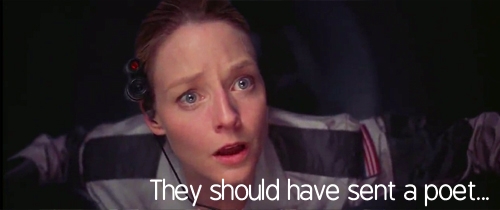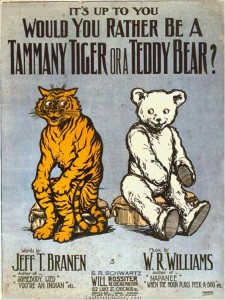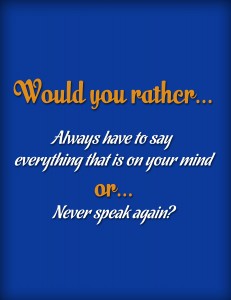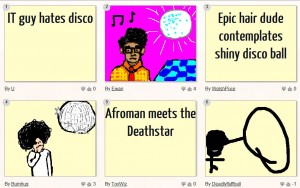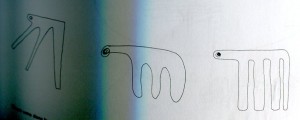Author: Cubilone
Review: H τέχνη του να γίνεσαι βαρετός με τις ταξιδιωτικές σου αφηγήσεις

H τέχνη του να γίνεσαι βαρετός με τις ταξιδιωτικές σου αφηγήσεις by Matthias Debureaux
My rating: 3 of 5 stars
Βρίσκεται στη βιβλιοθηκούλα του Υπερωκεάνιου, όπου το ρούφηξα μαζί με τον καφέ μου σήμερα. Είναι ενδιαφέρον το ότι αυτό το μικρό βιβλιαράκι των 50 σελίδων και της μίας ώρας το έχει γράψει ένας Γάλλος που δουλειά του είναι να γράφει για ταξιδιωτικά περιοδικά! Ποτέ δεν ξέρεις αν τις συμβουλές που σου δίνει στις δίνει επειδή τον ενοχλούν συνάδελφα βαρετά ταξιδιαρο-ποζέρια -δηλαδή είναι το απόσταγμα πολυετούς εμπειρίας και μεγάλης βαρεμάρας- ή απλά περιγράφει το τί ο ίδιος συνηθίζει να κάνει (εμπνέοντας χασμουρητά στους γύρω του από άλλη μια δόση εξωτικού λογυδρίου και αντίστοιχης υποχρεωτικής παρουσίασης πολυάριθμων και όχι και τόσο ενδιαφέροντων φωτογραφιών) και θέλει πολύ απλά να εξιλεωθεί, βγάζοντας τα από μέσα του και αναγάγοντας σε τέχνη το χαρακτηριστικό του που περισσότερο τον κάνει κάπως ανεπιθύμητο σε φιλικά πάρτι.
Το βιβλίο μου θύμισε, για άλλη μια φορά, κάτι που κάποτε είχα διαβάσει στο Matador: 6 ways to not be a holier-than-thou traveller. Βέβαια, την ανάγνωση αυτού του άρθρου το οποίο μόλις ανέσυρα από τα έγκατα της μάλλον πρόσφατης μνήμης μου θα την πρότεινα μόνο σε κάποιον που έχει σκοπό το ακριβώς αντίθετο από αυτό που πραγματεύεται το βιβλίο αυτό: να ΑΠΟΦΥΓΕΙ να κουράσει το ακροατήριο του με τις περιπέτειες που είναι ενδιαφέρουσες μόνο σε εκείνον. Χμ. Κάποιον αστείο παραλληλισμό ήθελα να κάνω αλλά μπερδεύτηκα μέσα στην ίδια μου την ειρωνεία. Ας είναι.
«Αν τυχόν έχετε ταξιδέψει, αποφεύγετεε να το αναφέρετε κάθε τρεις και λίγο· οποιοσδήποτε με χρήματα και ελεύθερο χρόνο έχει τη δυνατότητα να ταξιδέψει», έλεγε κάποιο βικτωριανό περιοδικό για ευγενείς κυρίους και παραθέτει με τη σειρά του το βιβλίο. Ας θυμόμαστε όλοι τα σοφά αυτά λόγια την επόμενη φορά που θέλουμε να μοιραστούμε τις φωτογραφίες μας από το Λονδίνο, το Παρίσι ή την Νέα Υόρκη, τις οποίες παρουσιάζουμε λες και δεν απεικονιζόμαστε σε μέρη τα οποία επισκέπτονται εκατομμύρια άνθρωποι τον χρόνο, ή το πόσο ΓΑΜΑΤΟ ήταν εκείνο το ζευγάρι με το οποίο κάναμε CouchSurfing στο Ανατολικό Τιμόρ και πόσο μας έδειξαν όλες τις μαγευτικές μεριές του νησιού που αλλιώς ποτέ δεν θα ανακαλύπταμε και πόσο οι ρυθμοί εκεί είναι τόόόσο πιο ήρεμοι, μέσα στο τροπικό δάσος της Ινδονησίας, εκεί που τα χρήματα δεν έχουν σημασία και οι άνθρωποι είναι μακριά από τον δυτικό τρόπο ζωής…
MUTE: The Visualization Of An Economic Rape
MUTE – The visualization of an economic rape from Yiannis Biliris on Vimeo.
Dramatic representation of 2012 Greece (I’m tempted to say Athens). Good direction and photography, kind of corny at times, even when the subject is very dramatic indeed… still good though.
Review: The Dispossessed

The Dispossessed by Ursula K. Le Guin
My rating: 5 of 5 stars
A few light years away from Terra, there is a dual system of a planet and a moon, similar to the one back home. The planet, Urras, is a beautiful planet, rich with natural splendour, floral and faunal variety and the kind of society you’d find on Terra: full of social inequalities and a global culture founded on ownership, reflecting almost nothing of its beauty on the lives of the population.
The moon of that planet is Anarres. It has an atmosphere that paints the sky violet but is little more than a large desert with not too much water and only a few species of plants and animals – the most advanced species apart from humans living there are fish. Humans from Urras have settled Anarres 150 years now, in the space-age equivalent of ’30s Catalonia, after a massive social movement in Urras following an important religious/revolutionary figure by the name of Odo forced the Urrasti to make concessions and agree with the revolutionaries to let them put themselves into exile on the moon, founding an anarchist society in the process.
Since then, the Odonians have led quiet, balanced, happy lives on Anarres. Odo’s theories/preachings supported that people are like cells of a single organism, together with the rest of life forming a greater consciousness, and should act the part, leaving ownership and “egoising” behind and focusing on the welfare of the community. Every man’s or woman’s duty in this society is to do the thing they can do and enjoy doing best, similar to a specialised organic cell, so that they should be productive as well as happy and fulfilled in the process: that was her secret of a balanced and healthy society, in tune with its environment and living space. As a sidenote, I’d like to point out here that the same ideology is represented in 1984: that IngSoc is an organism that consists of tiny cells which are the members of the party. It asks a completey different quesion based on that assumption though: “do you die every time you clip your fingernails, Winston?” It uses this train of thought to argue for the survival of the organism even when its individual members have to be eliminated in order to ensure survival of the greater consciousness; quite the opposite of what Odo says, which is that the welfare of the organism depends on individual welfare as well as the co-operation and solidarity between its cells. In both sides of the argument, egoism is repressed, but for completely different reasons.
To return to Odonianism: to allow themselves to have such a lifestyle, people would have to get rid of such distractions as wasteful culture including ownership, money and egoistical behaviour. The experiment worked and the results we catch a glimpse of in The Dispossessed.
People on Anarres share everything, even their homes and their sexual partners — keeping a partner for yourself is regarded as egoistical and equivalent to having them as your property; it is thus disencouraged (as are all possessive pronouns, even when it comes to family relationships) unless it’s for rearing a child. People are free to lead the lives they please as long as they don’t get in the way of their ammars, that is to say their brothers, doing the same.
The protagonist is a guy named Shevek, a name given to him by a computer as is the tradition in Anarres, which ensures the uniqueness of every individual and the uselessness of last names, in turn weakening family ties in favour of a more collective familial sentiment. The reader follows Shevek throughout his life and the problems he has growing up in this society when he is not as sociable as others. You see, he is a scientist, a theoretical physicist with great potential. But what happens when his society, good, balanced and just as it may be, doesn’t allow him to be the best he can be? For games of power exist in Anarres as well, and the person in charge of him in the institute knows the ropes very well; the difference is that the payoff is influence and fame, not money. What should he do: try leaving Anarres for Urras to make his ideas known and accepted there, making the world better in the process, or stay in his society following the norms that forbid most kinds of communication with the outer world?
The answer is given in the first chapter of the book, whence we follow Shevek in his stay in Urras. The book is chronologically mixed up (fittingly, in my opinion, as Shevek’s main goal in his field is to make a unified theory of simulaneous time) and alternately follows Shevek’s backstory in Anarres and his present life in Urras. Both settings were equally satisfying: looking at a foreign anarchist who’s never known anything else coming in contact with “profiteer” (a horrible insult in Pravic) society, is just as interesting as looking at how people have managed to build a fully working bona fide anarchist society in Anarres and the details of their day-to-day existence on the arid planet.
I have divulged this much of the book’s plot for it is not therein that its charm is hidden. I don’t think I’m blurting out spoilers here. There is little mystery or what we’d recognise as development in the story. The feeling it gave me was much less of a thrilling narrative and much more of a beautiful journey in a foreign land. All the other characters apart from Shevek, even perhaps Shevek himself, were there only to guide us through this utopia. The little things the traveller discovers are what make The Dispossessed a zen-like, heart-warming experience: Shevek’s first encounters with animals; his discussion with a Terran embassador; labour allocation in Anarres; the contrast between the placentas being kept after birth in Anarres as part of their zero-waste culture and the huge shopping malls in Urras, which could make any Anarresti physically ill; sex in Urras and how Shevek finds it so foreign and pretentious, and so on.
Furthermore, and I think this is very important, we get a look at the disadvantages of living in an anarchist society as Shevek experiences them; the necessity of sacrificing certain ambitions in favour of the common good, the morality of the question itself, the tendency of people, no matter what political inclination they have and culture they belong to, to grow conservative over time and forget their very own beliefs, growing rigid and rule-abiding rather than flexible and people-friendly, utilitarian rathen than deontological…
“She [Le Guin] invites, as Tolkien does, a total belief”, reads a snippet of a critic on the back-cover of my copy. If a sci-fi novel can make me believe in the existence of a real anarchist society somewhere in the galaxy and by extension in the real possibility of an anarchist society much closer to home, I can’t but heartliy agree with the above snippet.
North Korean Mass Games
If you want an existing state that’s more like Oceania than any other, look no farther than North Korea, at least as far as complete control on the population’s lives and the adoration of a leader and a banner go. The videos are literally awesome: they are awe-inspiring.
High-quality photographs and article on German photographer receiving permission to photograph the games for the first time in 2011. Softness is what killed Kim Jong-il.
Finally, and while we’re still on North Korea, it didn’t take me a lot of YouTube Hopping to reach to the following. It was too good not to post!
Review: 1984 : Ο μεγάλος αδελφός

1984 : Ο μεγάλος αδελφός by George Orwell
My rating: 5 of 5 stars
Under the spreading chestnut tree
I sold you and you sold me
There lie they, and here lie we
Under the spreading chestnut tree
I always loved how, in the book, pop prolefeed songs are manufactured by computers; no human creativity is needed. I involuntarily recall this tidbit whenever I listen to the newest radio hit these days.
I originally read Nineteen Eighty-Four (the original title, though understandably usually shortened to 1984) in Greek a few years back. 10 days or so ago I felt a need to return to it in English and did so in audio book format, read by Simon Prebble.
They say that Brave New World describes our world much better than 1984 does, that the blissful ignorance is much more prominent in our society than 1984’s “boot stamping the human face”. I’ve always held at heart that our own dystopia in the making is the neat blend of the two: the blissfully ignorant sex, drugs and genetically determined human strata, go hand in hand with a government that is in love with power and has merely chosen this more subdued but no less effective way to prolong its ever-lasting dominion.
In this world, wars never end; the enemy is unbeatable and ever-present. Bombs go off randomly every now and again just to allow your mind to come in terms with this fact. Telescreens follow the population everywhere. Nowadays people even take little telescreens with them and have feelings of withdrawal if they are ever separated from them. Those who control the present control the past, and those who do so, do it very, very well. So well, in fact, that public opinion can be swayed one way or another in a matter of weeks or even days — so little do people actually remember, so easily do they forget. Relativism is used as the end-all be-all argument to support that might is right following sickening twists of logic: that there is no nature “out there”, thus truth is dictated by the government and the government only. A similar argument hides behind the saying “who wants to ban fascist groups is against freedom of speech and a fascist themselves!” The encouragement of doublethink, of which the above is but an example, ultimately has people holding two contradicting beliefs at the same time: “I’m not a racist, but everybody knows that our race is more advanced” or “war is peace, freedom is slavery, ignorance is strength”. In a similar vain, the government body that is responsible for hitting people and quenching peaceful protests is named “Ministry of Citizen Protection” and the one which makes sure that everyone starves is called “Ministry of Development”, releasing false figures to mask the facts and manipulate the masses. They are allowed to do so; there are no real laws, since the judiciary body is also controlled by the government. What about the proles where the hope for revolution lies? They’re either too busy surviving to actually think for themselves or they’re blindly consuming the “prolefeed” the party is providing them with, including of course their own propaganda.
…oh, sorry about that. I got carried away there and started describing our own living, breathing 2012.
This is definitely one of the masterpieces of the 20th century and is one of absolute favourites. It stands as a beaming symbol of the totalitarian societies of the past and of political oppression, violence, propaganda, hunger for power etc. Orwell’s vision was so ironically vivid, realistic and reverberated with so many that his name has even come through this book to stand for a whole arrangement of things that smack of real-world totalitarianism. Even if he did write it for a different world than what exists more than half a century later, it’s evident that when it comes to human societies, old loves die hard; whether it is totalitarian socialism/communism or hardcore neo-liberal capitalism, it makes little difference. The essence, displays Orwell masterfully, remains the same. Reading 1984, especially for a second time, I got the same feeling Winston, the protagonist, gets from reading a certain book in the book itself: that he had always known about these things and that he was grateful that he had found someone who could articulate them for him.
Parts of 1984 are extreme, I’ll admit. Part Three is a punch in the gut every time. I just wanted to lie in a fetal position in the corner of my room after first reading it. It is that hopeless, that horrible. I can’t believe that states like Oceania et al. could be set up and maintain themselves on force, pain and hatred alone; call it conscience, call it a belief that people are basically good, I just can’t see such a place existing. It’s too evil to exist! That said, I can’t think of a way that such a regime, if already having been set up properly, could fall, either. Not to mention that in many ways, our own world and reality is full of unnecessary evil. Who’s to say if it’s within the bounds of possibility for the next logical step in this progression of evil and imbalance to be taken?
This nightmarish inevitability hidden within, the terror of the idea that if someone really wanted to create IngSoc and Oceania, they could, is what plays with my mind and I believe with every reader’s mind. We might, like Winston, think that such a world is just a work of dystopian fantasy; if we look around us carefully, we just might realise that the absoluteness of the pain, the torture and the future being described as “a boot stamping on a human face forever” might not be such absurd ideas after all.
The owner of the boot is creating his shoelaces made of hatred and fear as we speak. What if we could create our own artificial shortage of shoelaces?
Two foreign documentaries on immigration in Greece
How much further? from matthias wiessler on Vimeo.
Just click on the link above to watch it, don’t be deterred by the large “Sorry”.
Dublin’s Trap: another side of the Greek crisis from Bryan Carter on Vimeo.
You should definitely watch these two films if you want to see the human side of the immigration problem and get another perspective than the dominant racist, xenophobic, simplistic and short-sighted ideology and rhetoric.
Immigrants are streaming into Greece looking for a better future, abandoning their own countries because it is impossible for them to live in them anymore — a decision many Greeks, young as well as old, are too considering at this moment. It is not Greece they are after specifically, it’s the European dream. Much to their dismay, Greece not only proves not to be much of a hospitable place at all (hello, Χρυση Αυγή), it actually forbids immigrants to leave for other EU countries and in may cases go back to where they came from; this is in accordance with the Dublin II regulation which states that individual member countries are responsible for examining applications for asyllum by immigrants. This of course puts Greece in a dire situation compared to, say, Germany or Denmark, since of course it’s situated at the very borders of the EU and has to take care of countless more people.
Wouldn’t it be great if in a spirit of solidarity every member state had to take care of its fair share of the immigrants that land in the union’s borders? Now there are 4, maybe 5 countries that take in the most people. This sum divided by 27 would make things much more manageable. But is manageabality the desrired outcome? Is solidarity a desired stance? Apparently not.
Bottom line: it’s not the immigrants’ problem — we live in a globalised environment and no-one can control or pretend to limit the movements of entire populations: it’s the official European migration policies that smell of foul injustice and Greece’s willingness to follow them. Of course it would: these policies are perfect for creating collective scapegoats; scapegoats it has conveniently found in the faces of the hundreds of thousands of immigrants.
At this point in time, with Greeks deep in economical, political and ontological crisis, politicians knee-deep in shit but still doing their best to bring the country to an even lower point for their own questionable boals, and Europe having targeted the PIGS as responsible for a systemic problem, BOTH the Greek status quo and the European elites benefit from creating a targeted, marginalised, unsustainable immigrant influx. If you have lots of immigrants, impoverished and humiliated on a daily basis, you have the perfect mix for crime and insecurity to rise which in turn breed hatred within the resident population; just the right conditions for people to avoid seeing the real problems and point fingers away from the real culprits. It’s a win-win situation for all but the citizens and the immigrants themselves of course.
As long as Greeks point their little fingers to the immigrants, conveniently blame them for everything and anything, claiming back the moral and racial superiority which were the only contributors to the self-respect which was robbed from them, and avoid looking at the reality which has been put in place by the government and the EU, the problem will only get worse. As long as Greece itself happily remains a scapegoat for all of the EU’s planned and structured abnormalities and injustices, there won’t be a solution. In fact, you should keep in mind that some “solutions” to problems are designed precisely in order to not end but prolong or even intensify the problem they’re supposed to rectify.
Unless, of course, we get the SURPRISE! Mihaloliakos so chillingly promises us in the second video were he ever to come to power (skip to 48:50). This was before Golden Dawn became a parliamentary party, mind you. Before a lot of the disgusting developments of recent months.
Αγαπημένα παιχνίδια παρέας
Ένα από τα κρυφά μου πάθη είναι τα παρεΐστικα παιχνίδια στο στυλ του πασίγνωστου Παλέρμο. Είναι μινιμαλιστικά και άρα δεν χρειάζονται κανενός είδους προετοιμασία ή εξοπλισμό, είναι πολύ διασκεδαστικά, πολύ έξυπνα και δένουν τους ανθρώπους! Αυτό το ποστ είναι αφιερωμένο σε μερικά που προτείνω ανεπιφύλακτα και που απλά δεν μου δίνονται αρκετές ευκαιρίες για να τα παίζω!
Για τους σκοπούς αυτού του κειμένου, η λέξη παίκτης είναι ταυτόχρονα θηλυκού και αρσενικού γένους, όπως οι λέξεις: ιατρός, γραμματέας, διευθυντής, αγέλαστος, οδηγός λεωφορείου, υπήκοος, βλάκας, ψυχασθενής κ.α.
1. Contact
Το μεγάλο ντεμπούτο του Contact ήταν στη Σαμοθράκη όταν είχα φέρει εκεί παιχνίδια παρέας που είχα βρει στο ίντερνετ αλλά δεν είχα δοκιμάσει ποτέ. Είχα σκεφτεί πως θα ήταν η ιδανική ευκαιρία να τα δοκιμάσουμε με τη τεραστίων διαστάσεων παρέα εκεί (17 άτομα σας λέω). Ενα από τα παιχνίδια που βρήκα ήταν και το Contact, το οποίο ήταν κρυμμένο σε ένα σχόλιο (!) στο άρθρο στο οποίο βρήκα τα παιχνίδια που πήρα μαζί μου, εκτυπωμένα, ωραία και οργανωμένα! Εκεί έμαθα και για το would you rather, το ακριβώς επόμενο σε αυτή τη λίστα. Όπως καταλαβαίνετε, η ανακάλυψη αυτή ήταν αρκετά αναπάντεχη. Tι σου είναι ο ιστός…
Το Contact είναι σαν μια διασταύρωση μεταξύ κρεμάλας, σταυρόλεξου, Ταμπού και ενός φανταστικού (;) παιχνιδιού το οποίο θα δοκίμαζε τις γνώσεις σας για τους φίλους σας.
Ένας είναι η μάνα ή ο «βασιλιάς». Ως βασιλιάς πρέπει να σκεφτεί μια λέξη, οποιαδήποτε λέξη, την οποία τουλάχιστον πιστεύει ότι θα ξέρουν τουλάχιστον κάποιοι από την παρέα. Μπορεί να είναι κύριο όνομα, ρήμα, γεωγραφική τοποθεσία, χαρακτήρας από βιβλίο/ταινία/παιχνίδι και φυσικά πολλά άλλα, προτιμούνται πάντως γενικότερα λέξεις που θα βρίσκονταν σε ένα λεξικό. Αφού έχει σκεφτεί τη λέξη, ανακοινώνει στους συμπαίκτες του το πρώτο γράμμα της λέξης. Ας πούμε ότι η λέξη που έχει σκεφτεί είναι «ποντίκι». Θα πει στους συμπαίκτες του ότι η λέξη ξεκινάει από π.
Οι υπήκοοι, δηλαδή όλοι οι παίκτες εκτός από τον βασιλιά, πρέπει να κάνουν στον βασιλιά γρίφους ή ερωτήσεις των οποίων η απάντηση ξεκινάει με το γράμμα που έχει δοθεί. Εδώ, θα μπορούσε ένας από τους υπηκόους να ρωτήσει τον βασιλιά: «μήπως είναι κάτι που πετάει;», έχοντας στο μυαλό του τη λέξη «περιστέρι». Αν ο βασιλιάς μπορεί να σκεφτεί κάτι που πετάει και ξεκινάει από π, δίνει την απάντηση σε μορφή: «όχι, δεν είναι περιστέρι», για να δείξει με αυτόν τον τρόπο ότι μπόρεσε να βρει μια απάντηση στον γρίφο που του έγινε. Προσοχή: ΚΑΘΕ απάντηση που θα ξεκίναγε από π και θα ήταν κάτι που πετάει θα μπορούσε να είναι δεκτή· αυτό είναι σε μεγάλο βαθμό και το νόημα του παιχνιδιού! Ο βασιλιάς θα μπορούσε αντί για περιστέρι να έχει απαντήσει πουλί, παπαγάλος ή και πύραυλος.
Ταυτόχρονα, ‘οσο ο βασιλιάς σκέφτεται την απάντηση του, αν κάποιος από τους υπόλοιπους υπηκόους έχει βρει κάτι που πιστεύει ότι απαντά την ερώτησηπρέπει να πει Contact! Αν ο ίδιος ο βασιλιάς δεν βρει τελικά απάντηση, ο υπήκοος που είπε contact λέει την δική του απάντηση (φυσικά απαγορεύεται να πει contact ο ίδιος υπήκοος που έκανε την ερώτηση!). Ουσιαστικά, οι υπήκοοι πρέπει να βρίσκουν ερωτήσεις τις οποίες ο βασιλιάς θα δυσκολεύεται ή δεν θα μπορεί να απαντήσει ενώ οι υπόλοιποι υπήκοοι θα μπορούν. Αυτή είναι η πολιτική και διπλωματική διάσταση του παιχνιδιού την οποία μπορούν εκμεταλλευτούν καλά δεμένες παρέες.
Αν ο βασιλιάς δεν μπορεί να δώσει απάντηση, δίνει το επόμενο γράμμα της λέξης του: στην περίπτωση του «ποντίκι», το όμικρον. Οι απαντήσεις στους γρίφους τώρα πρέπει να ξεκινάνε με «πο», και ούτω καθεξής. Το παιχνίδι τελειώνει αν οι υπήκοοι τα παρατήσουν, οπότε ο σαδιστής βασιλιάς μπορεί να βάλει μια νέα λέξη, η κάποιος από τους υπηκόους κάνει μια ερώτηση στον βασιλιά που δεν μπορεί να απαντηθεί με οποιαδήποτε άλλη λέξη εκτός από αυτή που έχει σκεφτεί. Πχ: αν κάποιος ρωτήσει, έχοντας για αρχή το πο: «είναι κάτι που έχει σχέση με υπολογιστή;», ο βασιλιάς μπορεί να αποφύγει να δώσει την απάντηση λέγοντας «όχι, δεν είναι πολύπριζο». Αν η ερώτηση όμως είναι «είναι κάτι με το οποίο κουνάμε τον κέρσορα στην οθόνη;», ο βασιλιάς δεν θα μπορεί παρα να πει πως ηττήθηκε και να δώσει τη θέση του στον υπήκοο που έκανε την ερώτηση-τελειωτικό χτύπημα.
Το παιχνίδι ακούγεται περίπλοκο αλλά είναι πολύ απλό. Πάντα στις παρέες στις οποίες το μαθαίνω μου λένε ότι ακούγεται πιο δύσκολο όταν το εξηγείς απ’ότι όταν τελικά το παίζεις, όταν και αποδεικνύεται απλούστατο. Δεν ξέρω αν φταίω εγώ σ’αυτό και η πιθανή έλλειψη μεταδοτικότητας μου. Δυστυχώς, άλλο τόσο δεν υπάρχει εύκολος τρόπος να το εξηγήσεις γραπτά. Aν διαβάσετε πάντως και το από πάνω λινκ (θυμηθείτε, είναι στα σχόλια!) και επιμείνετε όπως αρχικά επιμείναμε εμείς, θα το κατακτήσετε πολύ εύκολα. Μόνο συνιστώ προσοχή γιατί είναι πάρα πολύ εθιστικό. Στη Σαμοθράκη το παίζαμε 3-4 μέρες αδιάκοπα και μετά όλοι μας αφού γυρίσαμε στην Αθήνα το παίζαμε με άλλες παρέες και το εξαπλώναμε σαν πανούκλα! Στόχος μας είναι το Contact να παίζεται σε όλες τις παρέες στην Ελλάδα. Και όντως, πριν λίγες μέρες όταν είχα βγει με μια παρέα (στην οποία ήμουν ο μόνος άντρας :ξ ), κάποιες από τις κοπέλες ήξεραν ήδη το παιχνίδι. ΟΚ, οι βαθμοί διαχωρισμού μεταξύ μας ήταν λίγοι, αλλά και πάλι…
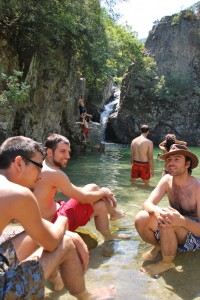
Σε εκείνη την παρέα αρχίσαμε από τις ~10:00 που φτάσαμε στο τσιπουράδικο και παίζαμε μέχρι τις 1:30 που αρχίσαμε να το σπάμε. Κανείς δεν ήθελε να μιλήσει για οτιδήποτε άλλο.
Παίζετε υπεύθυνα.
2. Would you rather (Τι θα προτιμούσες;)
Είναι η μη-διαδικτυακή μορφή του would you rather. Σκοπός είναι να γίνονται ερωτήσεις του στιλ: «θα προτιμούσατε να έχετε τεράστιο κεφάλι ή πολύ πολύ κοντά πόδια;» // «θα προτιμούσατε να μην ξαναδείτε ταινία ή να μη ξαναπαίξετε videogame?» // «θα προτιμούσατε να ζούσατε στον κόσμο του Star Wars ή να είχατε δαιμόνιο όπως αυτά στην Τριλογία του Κόσμου;» // «θα προτιμούσατε να πάτε με κάποιον/α με τέλεια εξωτερική εμφάνιση που θα κάνει απαίσιο σεξ, ή με κάποιον/α με απαίσια εξωτερική εμφάνιση που θα κάνει τέλειο σεξ;»// «τηλεμεταφορά ή πτήση;»// «τυφλός μουσικός ή κουφός ζωγράφος;»// «να μη χρειάζεται να ξανακοιμηθείτε ή κάθε όνειρο σας να μπορείτε να το ελέγξετε συνειδητά;»
Oι πετυχημένες ερωτήσεις είναι αυτές οι οποίες θα προκαλέσουν τη μεγαλύτερη σκέψη και συζήτηση στην παρέα! Και εδώ συνιστώ προσοχή: συχνά η συζήτηση που προκαλείται κλιμακώνεται σε έντονες αντιπαραθέσεις και το παιχνίδι απλά ξεχνιέται. Ξανά, μιλαώ από εμπειρία.
3. Χαλασμένο τηλέφωνο με ζωγραφιές
Γι’αυτό θα χρειαστείτε χαρτί και μολύβι/στυλό. Ο κάθε παίκτης χρειάζεται από ένα κομμάτι χαρτί, το στυλό μπορεί να κάνει γύρες. Ο πρώτος ζωγραφίζει κάτι στο κομμάτι χαρτί του, και το δείχνει στον διπλάνο του για λίγα δευτερόλεπτα. Αυτός πρέπει να ζωγραφίσει ό,τι θυμάται να είδε και στη συνέχεια να το δείξει στον επόμενο κ.ο.κ μέχρι να φτάσει το παιχνίδι πάλι στον πρώτο παίκτη.
Πιο γνωστή είναι η παραλλαγή που πάνε ζωγραφιές και ερμηνείες εναλλάξ. Δηλαδή, αν έρθει στα χέρια μου μια ζωγραφιά, πρέπει να γράψω από κάτω μια φραση με το τι βλέπω, να διπλώσω το χαρτί έτσι ώστε να μη φαίνεται η ζωγραφιά και να τη δώσω στον επόμενο — ή αν μου έρθει μια φράση, να τη ζωγραφίσω, να καλύψω τη φράση και να δώσω το χαρτί στον επόμενο. Αυτή την παραλλαγή μπορείτε να την παίξετε και online εδώ.
(σκαναρισμένα από το The Art of Looking Sideways, μάλλον το πιο πολύτιμο και συναρπαστικότερο βιβλίο το οποίο βρίσκεται στη κατοχή και φροντίδα μου, και απ’όπου έμαθα γι’αυτό το παιχνίδι)
4. Το πάρτι (ή «Κριτήρια»)
Αυτό το παιχνίδι το έμαθα πρώτα απ’την Άλεξ. Ένας από τους παίκτες «διοργανώνει ένα πάρτι» στο οποίο μπορούν να μπουν οι παίκτες αν πληρούν κάποιο κριτήριο το οποίο έχει θέσει ο διοργανωτής. Στόχος των υπόλοιπων παικτών είναι να βρουν ποιο είναι αυτό το κριτήριο, ρωτώντας τον διοργανωτή με την σειρά αν, φέροντας κάποιο αντικείμενο μαζί τους, μπαίνουν στο πάρτι.
Το κριτήριο μπορεί να είναι τα πάντα: από τό αν το αντικείμενο που θα διαλέξει ο καλεσμένος είναι κόκκινο ή κάτι το στρογγυλό ή που περιέχει ηλεκτρονικά ή, ή, ή… μέχρι και το είδος του αντικειμένου να είναι τελείως άσχετο, και απλά να πρέπει να ξεκινάει με το ίδιο γράμμα που ξεκινάει και το όνομα του παίκτη που ρωτάει, ή το αντικείμενο να μην παίζει ΚΑΝΕΝΑΝ ρόλο και να μπαίνουν, σταθερά, οι παίκτες εναλλάξ, ή απλά να μπαίνουν οι άντρες ή να μπαίνουν οι παίκτες που το όνομα τους τελειώνει σε ένα συγκεκριμένο γράμμα…
Ο πορτιέρης/διοργανωτής πρέπει να δίνει και στοιχεία για το τι περνάει. Δηλαδή, αν κάποιος τον ρωτήσει «περνάω με μια σιδερώστρα;», θα πει ναι ή όχι, αλλά αν θέλει να βοηθήσει, ή αν είναι η σειρά του στον κύκλο, θα πρέπει να πει «περνάω με έναν αλιγάτορα». Το τι περνάει και το τι όχι είναι ο μόνος οδηγός για να μπορούν να ανακαλύψουν οι καλεσμένοι ποιο είναι το κριτήριο.
Ψάχνοντας στο ίντερνετ για παραδείγματα, θυμήθηκα και το παιχνίδι που όντως παίζαμε με την Άλεξ και άλλα παιδιά στο myAegean πριν τόσα χρόνια… Ααααχ. Διαβάστε και μάθετε! Προσοχή: πάλι από εμπειρία θα σας πω πως όπως και τo Contact, Τα Κριτήρια πρέπει να έρχονται με μια προειδοποίηση από το υπουργείο Υγείας σχετικά με την εξαιρετικά εθιστική τους φύση αλλιώς μπορεί να κλαίμε θύματα όπως στην Κορέα πεθαίνουν στα ίντερνετ καφέ παίζοντας 72ωρα WoW χωρίς διαλείμματα για φαγητό, νερό, ξεκούραση ή σωματικές εκκρίσεις.
5. Χαρτάκια στο κούτελο (πώς λέγεται αυτό το παιχνίδι αλλιώς;;)
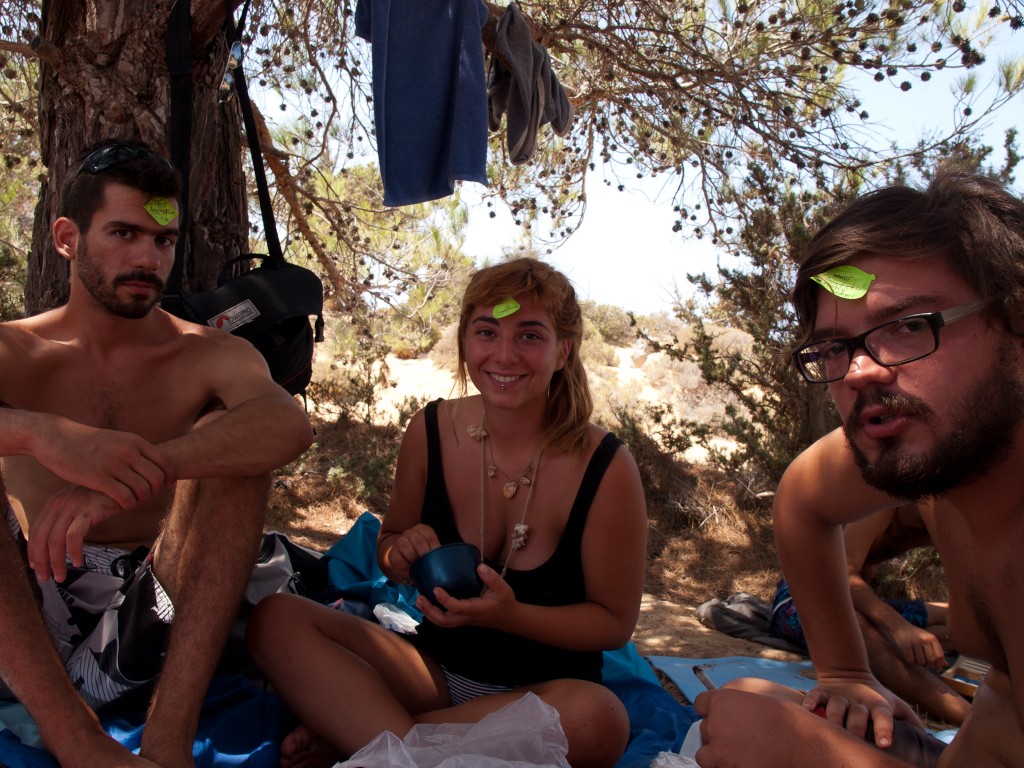
Όλοι το μάθαμε από τη σκηνή στο Inglourious Basterds. Ο καθένας γράφει ένα όνομα πραγματικού ή φανταστικού διάσημου προσώπου ή τουλάχιστον κάποιου που θα μπορεί να ξέρει όλη ή το μεγαλύτερο μέρος της παρέας, σε ένα post-it ή σε κάτι που θα μπορεί να κολλήσει στο μέτωπο του. Όλοι βάζουν τα χαρτάκια τους στη μέση, τα ανακατεύουν, διαλέγουν ένα και χωρίς να δουν βέβαια τι είναι γραμμένο. το κολλάνε στο κούτελο τους.
Κάθε παίκτης προσπαθεί, με μια ερώτηση κάθε φορά, όταν έρθει η σειρά του, να καταλάβει τι ακριβώς είναι γραμμένο στο χαρτάκι που βρίσκεται στο κούτελο του και αντίστοιχα όλοι απαντάνε όταν κάποιος άλλος ρωτάει για το δικό του χαρτάκι. Οι ερωτήσεις πρέπει να είναι κλειστού τύπου (να απαντώνται με ναι/όχι).
Στην Αγγλία είναι γνωστό και ως Rizla game, και θα σας αφήσω να μαντέψετε το γιατί!
Ωραία. Τώρα, ας παίξουμε! ^^J
5 λόγοι για να καταραστείτε την εταιρεία καρτοκινητής σας
Επειδή τα λέω όλα στη φόρα,δεν λέω «κάποιοι» ούτε αφήνω υπόνοιες, το ξεκαθαρίζω εξ αρχής: πρόκειται για το έκτρωμα που λέγεται Cosmote. Αν είστε φαν της εν λόγω εταιρείας, ειδικά μετά από μια σειρά ιδιαίτερια πετυχημένων και εκνευριστικών διαφημίσεων σε όλα τα μέσα, μπορείτε να σταματήσετε να διαβάζετε εδώ γιατί αυτά που θα πω δεν θα σας αρέσουν. ΟΚ; Ξεκινάμε:
1. Αυξάνει τον ελάχιστο χρόνο κλήσης από 20″ σε 60″. Εκτός των άλλων, αυτό σημαίνει ότι χρειάζεται τριπλάσιο ελάχιστο υπόλοιπο για να πραγματοποιήσει κανείς μια αναπάντητη.
2. Παίρνετε μια καινούργια κάρτα των 10 ευρώ. Χρησιμοποιείτε τα 5 ευρώ για να έχετε 300 λεπτά και 300 SMS προς What’s Up. Όταν βάζετε και τον κωδικό για να ενεργοποιήσετε το δώρο σας που έρχεται μαζί με κάθε κάρτα, ανακαλύπτετε ότι αυτό το δώρο σας αναγκάζει να διάλεξετε ανάμεσα σε δωρέαν χρόνο προς What’s Up, δωρεάν μηνύματα προς What’s Up ή 60ΜΒ δωρεάν ίντερνετ. Για ένα κλάσμα νομίζετε ότι είδατε ένα trollface στην οθόνη. Ήταν μόνο η ιδέα σας. Η βδομάδα περνάει και το δώρο σας κλαίει σε μια γωνία αχρησιμοποίητο.
3. Προσπαθείτε επι 5 λεπτά να στείλετε ένα μήνυμα σε What’s Up. Λόγω του 2. κι επειδή δεν στέλνετε τόσα πολλά μηνύματα, λέτε, ΟΚ, θα έπρεπε να είναι τσάμπα! Κι όμως, το μήνυμα δεν φεύγει ποτέ.
4. Καλείτε το 1314 για να δείτε αν έχει γίνει αυτό που φοβάστε. Έχει γίνει αυτό που φοβάστε. «Το υπόλοιπο του λογαριασμού σας είναι ΜΕΙΟΝ μηδέν ευρώ και ένα λεπτό». Μάλιστα. Δεν μπορείτε να στείλετε μηνύματα τα οποία έχετε πληρώσει. Ευτυχώς (και ηλιθίως) μπορείτε να συνεχίσετε να παίρνετε τηλέφωνα ακόμα και στον ίδιο αριθμό που πριν λίγο προσπαθούσατε να στείλετε μήνυμα.
5. Δεν έχετε λεφτά για κάρτα και αποφασίζετε να δώσετε τα 40 λεπτά για την ληστρική υπηρεσία επέκτασης υπολοίπου. Η απάντηση της Cosmote γρήγορη και σαφής: «το υπόλοιπο του λογαριασμού σας δεν επιτρέπει τη χρήση της υπηρεσίας επέκτασης υπολοιπού».
Είναι σαν να σου απαγορεύουν την είσοδο σε ένα εστιατόριο αν πεινάς πάρα πολύ (και να σου ελέγχουν το στομάχι με υπερηχογράφημα κατα την είσοδο για να είναι 100% σίγουροι για το απόλυτο κενό). Είναι σαν ένας ιατρός να αρνείται να σε περιθάλψει αν βρίσκεσαι στην εντατική. Σαν σε ένα rent-a-car να σου επιτρέπουν να νοικιάσεις αυτοκίνητο μόνο αν έχεις αυτοκίνητο. Σαν να σου επιτρέπεται να χρησιμοποιήσεις μια τουαλέτα μόνο όταν δεν την χρειάζεσαι, δηλαδή μόνο αν την έχεις ήδη χρησιμοποιήσει. Σαν να νυστάζετε όλη τη μέρα και όταν πέφτετε για ύπνο να στριφογυρίζετε πέντε ώρες.
Τίποτα. Cosmote, θα στο πω απλά:
Everybody’s Free (To Wear Sunscreen)
Do one thing everyday that scares you
Sing
Don’t be reckless with other people’s hearts,
don’t put up with people who are reckless with yours.
Floss
Don’t waste your time on jealousy;
sometimes you’re ahead, sometimes you’re behind…
the race is long, and in the end, it’s only with yourself.
Remember the compliments you receive, forget the insults;
if you succeed in doing this, tell me how.
…
But trust me on the sunscreen.


